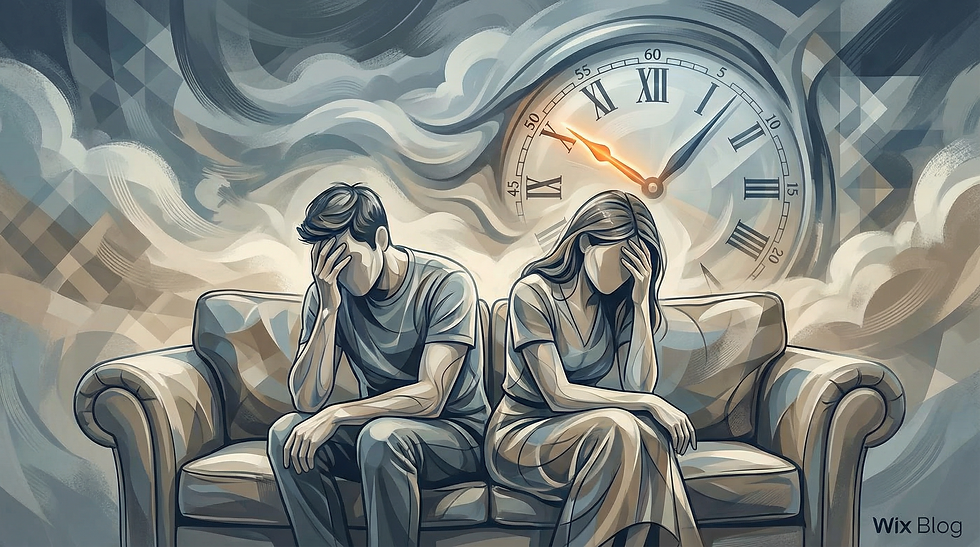Therapist Thoughts: 10 Things I Wish My Clients Knew
- Rawda Tomoum
- Jan 19, 2024
- 2 min read
Updated: Jan 24, 2024
1. It’s Okay Not to Be Okay: It's normal to have ups and downs. Admitting you're not okay is a strength, not a weakness. It's the first step toward healing and growth. Think of it like having a bad hair day, but for your emotions. It happens, and it's totally okay to not always be the picture of perfection. It will pass. You’ll survive it. And it really does not make you look as bad (or weak) as you think it does.
2. Therapy Is a Safe Space: Everything you share in therapy stays confidential. This space is judgment-free, designed for you to explore and express your thoughts and feelings openly. It's like Vegas. What's said here, stays here. Except with less neon lights and more insightful conversation.

3. Change Takes Time: Progress in therapy isn’t always linear or quick. Healing and personal growth are processes that take time, effort, and patience. Unless you have superpowers!
4. You Are Not Your Problems: Your challenges do not define you. You are a person with unique strengths and potential, facing certain issues, not a problem to be fixed. You HAVE a problem. You’re not THE problem.
5. Self-Care Is Vital: Taking care of your mental health is as important as physical health. Self-care practices are crucial for maintaining psychological well-being. Yes, it may not fix the problem, but it will give you the energy to keep going and to work on fixing it. And no, binge-watching TV shows doesn't always count (but sometimes, it totally does).
6. Honesty Is Crucial: The more open and honest you are, the more effective therapy can be. This includes being honest about your feelings towards the therapy process itself. You do not need to impress me, and you most certainly do not need to worry about disappointing me.
7. Therapists Don't Have All the Answers: Therapists guide, support, and facilitate exploration, but we don’t have all the answers. You are an active participant in finding and creating solutions that work for you. I'm more like Google Maps. I can suggest routes, but you're the one driving.
8. Asking for Help Is a Sign of Strength: Now that’s a big one! Reaching out for support when you need it is a sign of self-awareness and strength, not a weakness. You know when someone won’t just ask for directions when they’re lost. Yeah, we don’t want to be that person. Many people are happy to help.
9. First, validate your feelings: Resisting your feelings or shutting them down only makes them worse and more powerful. Acknowledging and accepting them is the first step and the key to understanding yourself better. AFTER THAT, comes the reasoning and problem-solving.
10. You Have the Power to Change Your Life: It may seem so farfetched, impossible even, but I’m here to tell you that it IS possible. And you don’t have to do it alone. Your therapist, your friends and your family can provide support and guidance, but again, you’re the one driving. We can’t steer or press the pedals for you.
Healing is a journey with its fair share of challenges. So just remember, you don’t have to do it all at one. One step at a time is more than enough.
Subscribe if you'd like to know when I share more of my therapist thoughts!




Comments